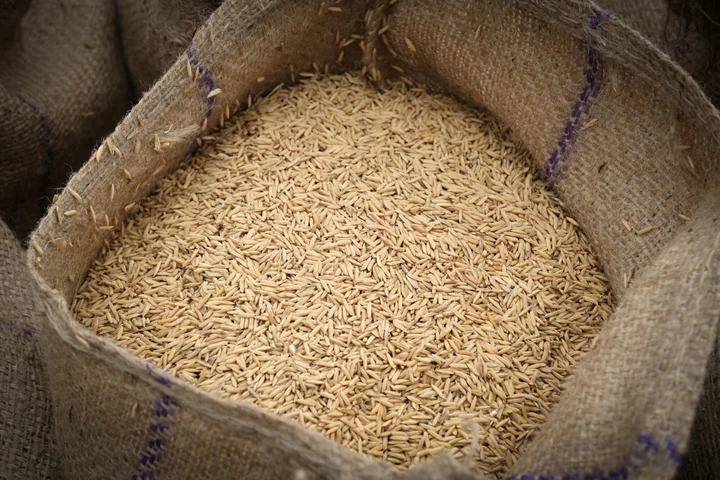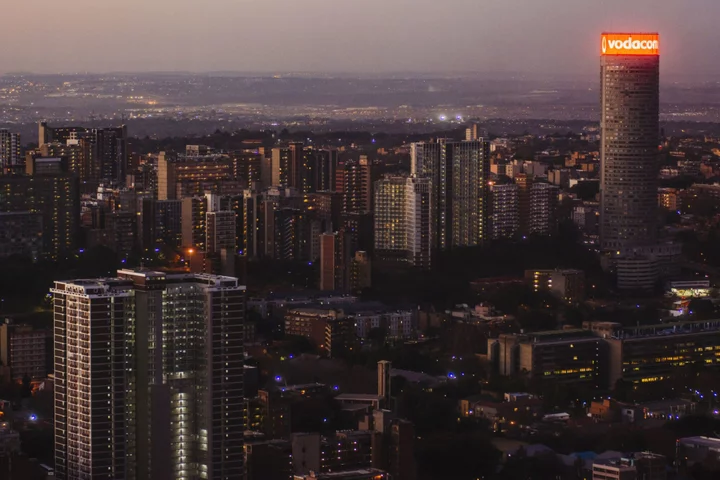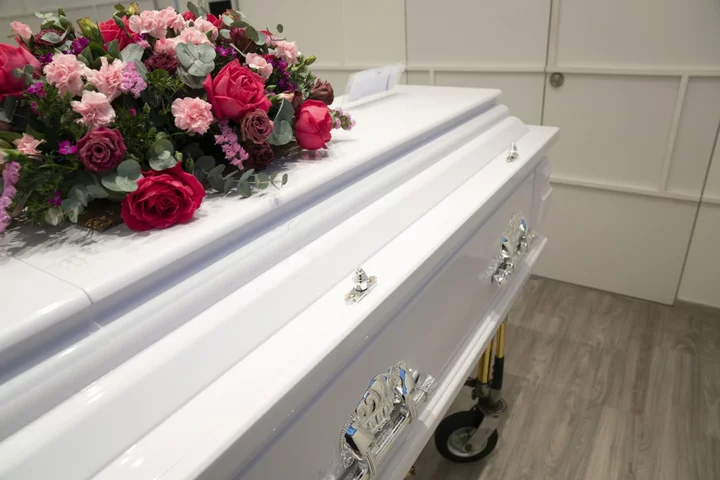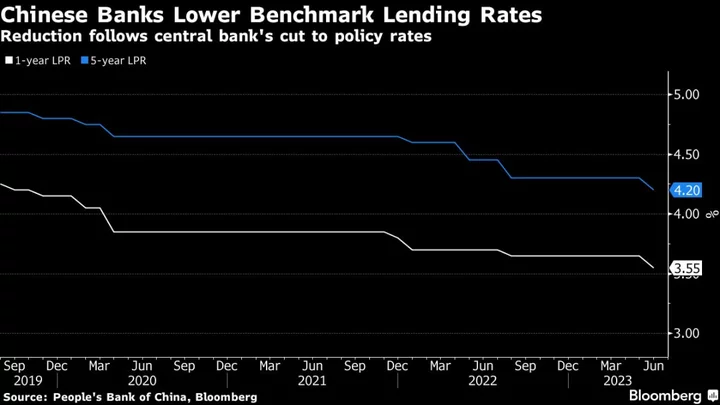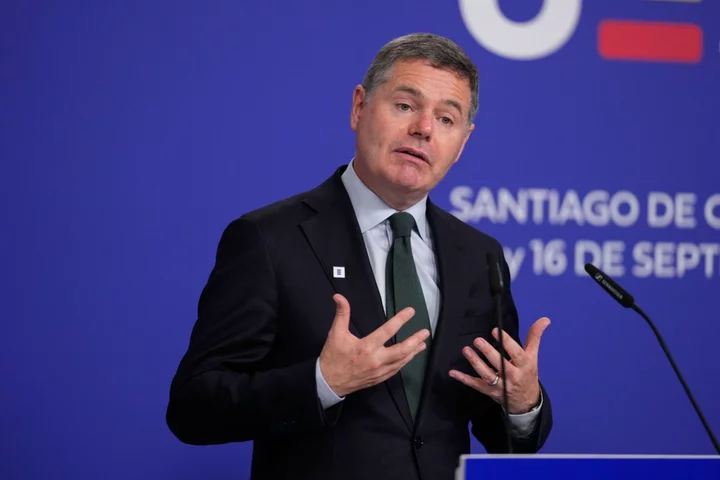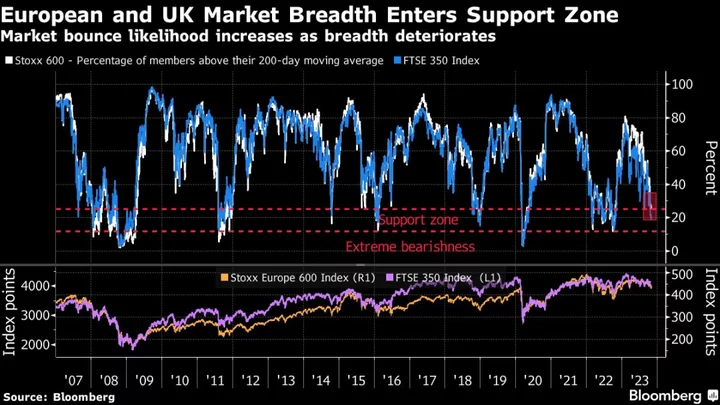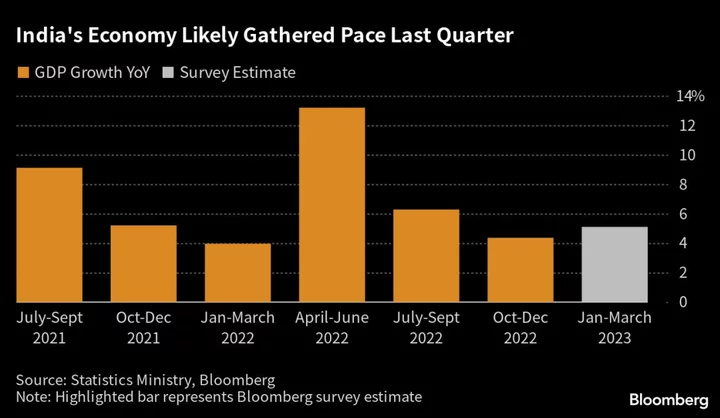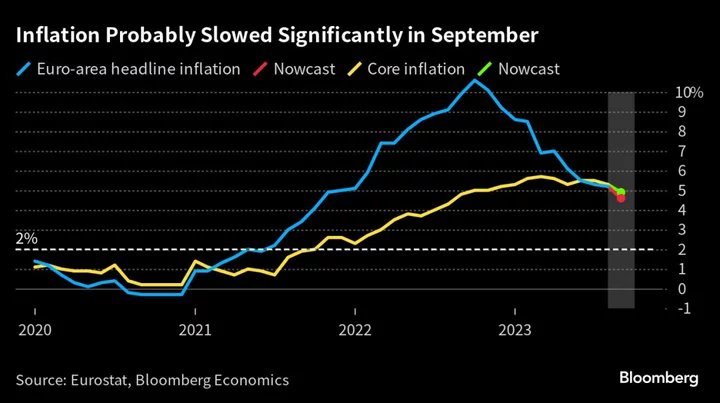Sign up for the India Edition newsletter by Menaka Doshi – an insider's guide to the emerging economic powerhouse, and the billionaires and businesses behind its rise, delivered weekly.
India’s cabinet on Wednesday approved a proposal to spend 11.8 trillion rupees ($142 billion) to extend a free food program for about 800 million beneficiaries for five years.
The new plan will come into effect from Jan. 1, Information and Broadcasting Minister Anurag Thakur told reporters at a briefing in New Delhi.
The development comes weeks after Prime Minister Narendra Modi vowed to extend the program in a bid to shield consumers from high food prices. The move ahead of polls in five key states this month and national elections next year, when Modi will seek a third five-year term, could provide some political mileage to the government.
Retail prices of rice have jumped 15% from a year earlier in Delhi, while wheat is about 7% costlier, according to data compiled by the food ministry.
Under the free food program, which started for the first time during the pandemic, about 800 million Indian citizens get 5 kilograms (11 pounds) of wheat or rice every month. The plan has been very popular and is widely credited for helping the ruling Bharatiya Janata Party win elections in some states last year.
The government has already restricted exports of wheat, rice and sugar to maintain local supplies of essential food items. To woo voters, the Modi administration has also increased subsidies on cooking gas and fertilizers. It’s considering some other support measures such as increased cash handouts to small farmers and cheaper home loans.

